
Germany–Morocco relations date back to the 19th century. The German Foreign Office describes Morocco as a "central partner of the European Union and Germany in North Africa," and Germany is an important trading partner for Morocco. In the past, however, relations have not always been entirely free of tension.

Relations between Germany and Algeria are described as "good" by the German Federal Foreign Office. Germany is among Algeria's most important trading partners. The two countries concluded an energy partnership in 2015.

Germany–Niger relations focus primarily on cooperation in development, security, and migration policy. Since 2016, bilateral relations have been significantly intensified, with several state visits at the highest level.
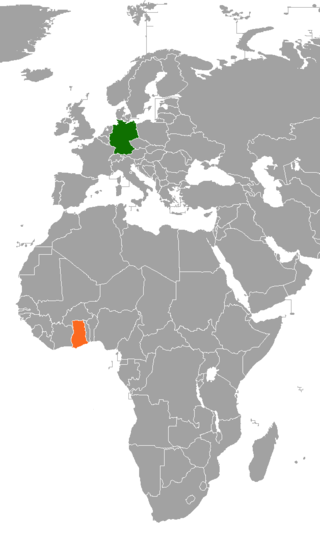
Germany–Ghana relations are good and Ghana is one of the priority countries for German development aid. Official Diplomatic Relations between the two countries were established in the 1950s, but contacts between the two societies go back much further and can be traced back to the 17th century.

Germany–Somalia relations have intensified since 2012 after the political and security situation in Somalia improved, according to information from the German Foreign Office. Germany has not had an ambassador to Somalia since 1989, and the German Ambassador in Nairobi is responsible for relations with Somalia instead.

Democratic Republic of the Congo–Germany relations are primarily characterized by the development aid that Germany provides in the DR Congo. Germany is one of the most important donor countries to the DR Congo.

Cameroon–Germany relations are described as "good" by the German Foreign Office. The two countries share a long common history and Cameroon was a colony of Germany from 1884 to 1918. Also due to German involvement in development cooperation, Germany is "positively perceived" in the country today.

German-Uganda relations have existed since 1962 and are described by the German Foreign Office as "positive". Uganda is one of the priority countries of German development aid and more than 100 associations and initiatives from Germany support humanitarian projects in Uganda.
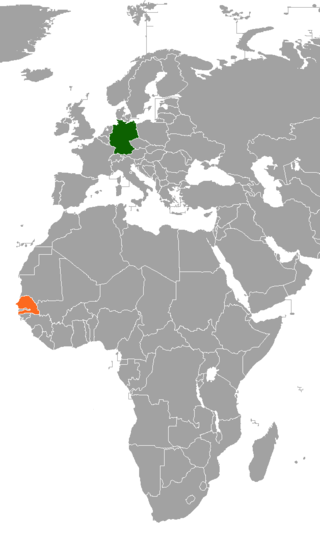
Germany–Senegal relations are the bilateral relations between Germany and Senegal. The relations are described by the German Foreign Office as "friendly." The two countries share a close partnership in development cooperation, and numerous cultural ties exist between the two countries.

Germany–Venezuela relations have a long tradition and were officially established in 1871. During Nicolás Maduro's tenure, relations have deteriorated and in 2019 Venezuela declared the German Ambassador Daniel Kriener a persona non grata; however, he was able to return to the country soon after. Close relations with Venezuela continue to be maintained by parts of the German left and the political party Die Linke.

Germany–Rwanda relations are good and there is a "close and pragmatic" relationship between the two countries, according to the German Foreign Office. In the 21st century, Germany is one of the most important donors of development aid to Rwanda.

Germany–South Sudan relations have existed since the independence of South Sudan in 2011. In the context of the civil war in South Sudan, the Federal Republic of Germany became an important donor of humanitarian aid to South Sudan.
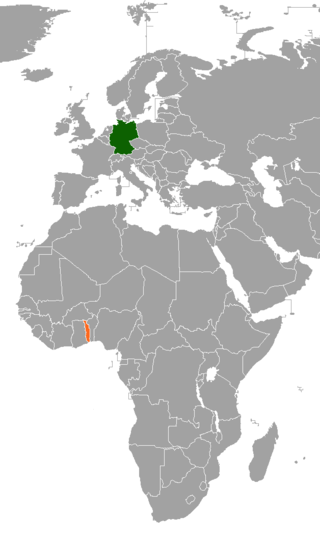
Germany–Togo relations are shaped by the shared past of both countries. From 1884 to 1914, Togo was a colony of Germany under the name of Togoland.

Germany–Mauritania relations are described as "good" by the German Foreign Office, and Germany provides development aid to Mauritania. However, state visits at the bilateral level are rare.
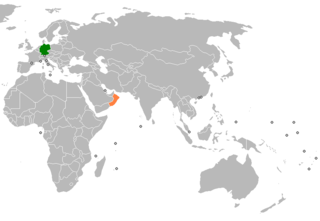
Germany–Oman relations are described by the German Foreign Office as "good and friendly". Germany is one of Oman's most important economic partners in areas outside the oil industry.

Germany–Madagascar relations are "traditionally friendly", according to the German Foreign Office. Diplomatic contacts have been maintained between the two countries since the 19th century. In the 21st century, relations between the two countries are predominantly characterized by development cooperation.

The quality of Germany–Guinea relations has been subject to some fluctuations since bilateral relations were established in 1958. Due to its long history of cooperation in development policy, the Federal Republic of Germany enjoys a good reputation among the Guinean public.
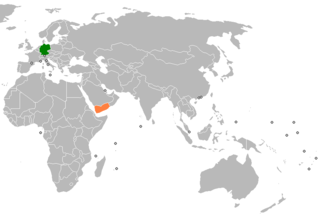
Germany–Yemen relations have existed since the 1960s. During the civil war in Yemen, the Federal Republic of Germany provided humanitarian aid to the country.
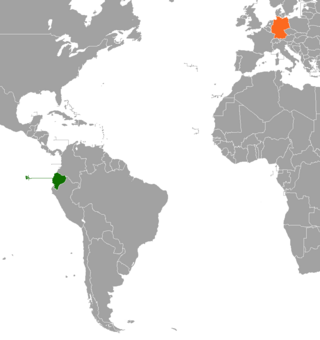
Ecuador–Germany relations have existed since 1922, and in the 21st century they focus on development cooperation, environmental policy, trade and investment and education.

Germany–Laos relations have existed on the bilateral level since the late 1950s.






















